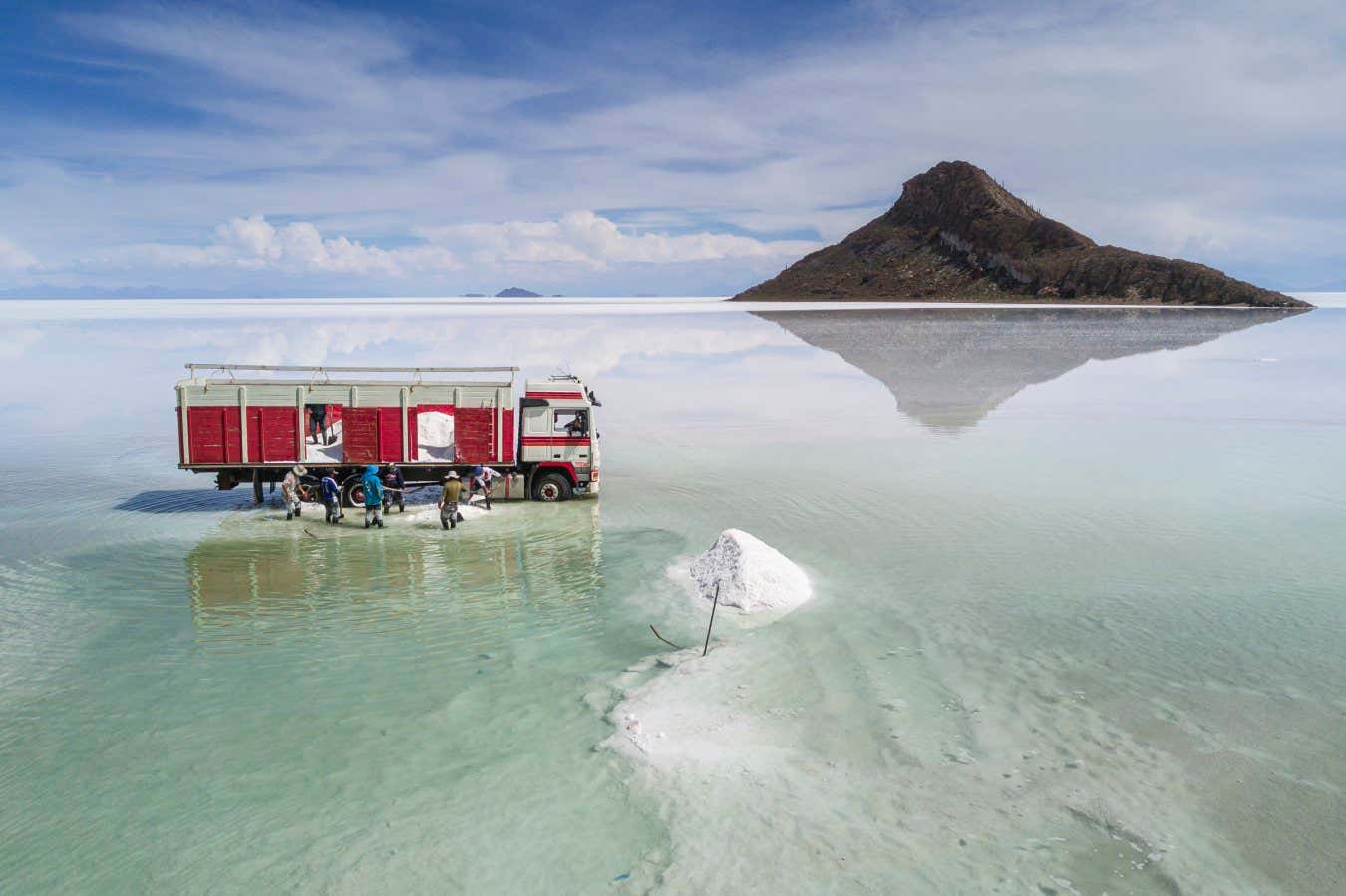
THIS eerily beautiful place is Salar de Uyuni, the world’s largest salt flat. It lies at the crest of the Bolivian Andes and covers over 10,000 square kilometres. But below its stunning surface, trouble is brewing. The demand for electric vehicles and the lithium batteries they require is booming, and Bolivia wants to exploit its lithium resources. The country’s state-owned mining company opened its first industrial-scale lithium plant (pictured below), near Uyuni in December 2023.

Yacimientos de Litio Bolivianos (YLB) lithium carbonate production facility
Marcelo Perez del Carpio/Bloomberg via Getty Images
Photographer Matjaž Krivic has been visiting the area since 2016, charting the effects of lithium mining. His photograph of the flat (shown above, in the main picture) was taken with a drone in 2017 and shows local salt miners loading their truck with salt. Krivic says the evaporation ponds of lithium production facilities will draw heavily on the region’s scarce freshwater, and that llama herders and quinoa farmers are worried.
Ten years ago, Bolivians were talking about their country becoming the Saudi Arabia of lithium, says Krivic. “This has taken a long time, but now they’ve opened their first industrial-scale lithium plant, the problems for locals around water shortages will really start.”
Topics:

